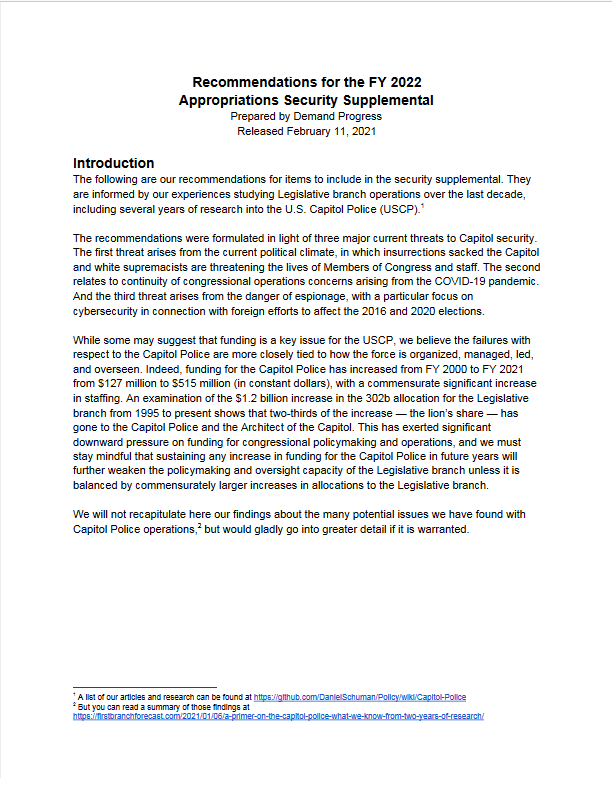For the last few years Demand Progress has been tracking appropriations testimony deadlines in the House and in the Senate. Specifically, we have kept track of:
- Public witness testimony deadlines and guidance
- Member witness testimony deadlines and guidance
- Member request deadlines and guidance
- Subcommittee/ full committee markups.
Here is that information, in spreadsheet form, for FY 2022 (updated once a week), FY 2021, and FY 2020.
You can find the spreadsheet for FY 2022 below, or just click on the link above.
[googleapps domain=”docs” dir=”spreadsheets/d/e/2PACX-1vT-RI0vK2aR4_GHtnl7s4UDG-b9g3xdZBHSbjsUi0SulY61y53vcikmPSqLH9VWfi0insQHb9TZxTDQ/pubhtml” query=”widget=true&headers=false” /]